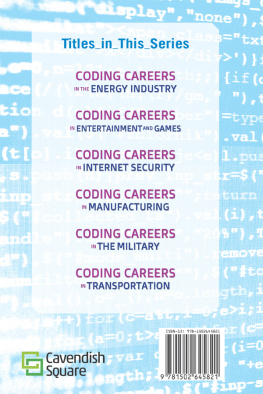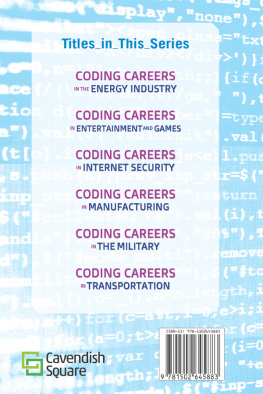
Published in 2020 by Cavendish Square Publishing, LLC
243 5th Avenue, Suite 136, New York, NY 10016
Copyright 2020 by Cavendish Square Publishing, LLC
First Edition
No part of this publication may be reproduced, stored in a retrieval system, or transmitted in any form or by any meanselectronic, mechanical, photocopying, recording, or otherwisewithout the prior permission of the copyright owner. Request for permission should be addressed to Permissions, Cavendish Square Publishing, 243 5th Avenue, Suite 136, New York, NY 10016. Tel (877) 980-4450; fax (877) 980-4454.
Website: cavendishsq.com
This publication represents the opinions and views of the author based on his or her personal experience, knowledge, and research. The information in this book serves as a general guide only. The author and publisher have used their best efforts in preparing this book and disclaim liability rising directly or indirectly from the use and application of this book.
All websites were available and accurate when this book was sent to press.
Library of Congress Cataloging-in-Publication Data
Names: Shoup, Kate, 1972- author. Title: Coding careers in internet security / Kate Shoup. Description: New York: Cavendish Square, 2020. | Series: Coding careers for tomorrow | Audience: Grades 7-12. | Includes bibliographical references and index. Identifiers: LCCN 2018059284 (print) | LCCN 2018061657 (ebook) | ISBN 9781502645838 (ebook) | ISBN 9781502645821 (library bound) | ISBN 9781502645814 (paperback) Subjects: LCSH: Computer programming--Vocational guidance--Juvenile literature. | Computer security--Vocational guidance--Juvenile literature. Classification: LCC QA76.6115 (ebook) | LCC QA76.6115 .S56 2020 (print) | DDC 005.8023--dc23 LC record available at https://lccn.loc.gov/2018059284
Editorial Director: David McNamara
Editor: Kristen Susienka
Copy Editor: Denise Larrabee
Associate Art Director: Alan Sliwinski
Designer: Ginny Kemmerer
Production Coordinator: Karol Szymczuk
Photo Research: J8 Media
The photographs in this book are used by permission and through the courtesy of: Cover Emir Klepo/Alamy Stock Photo; p. NASA.
Printed in the United States of America
Contents
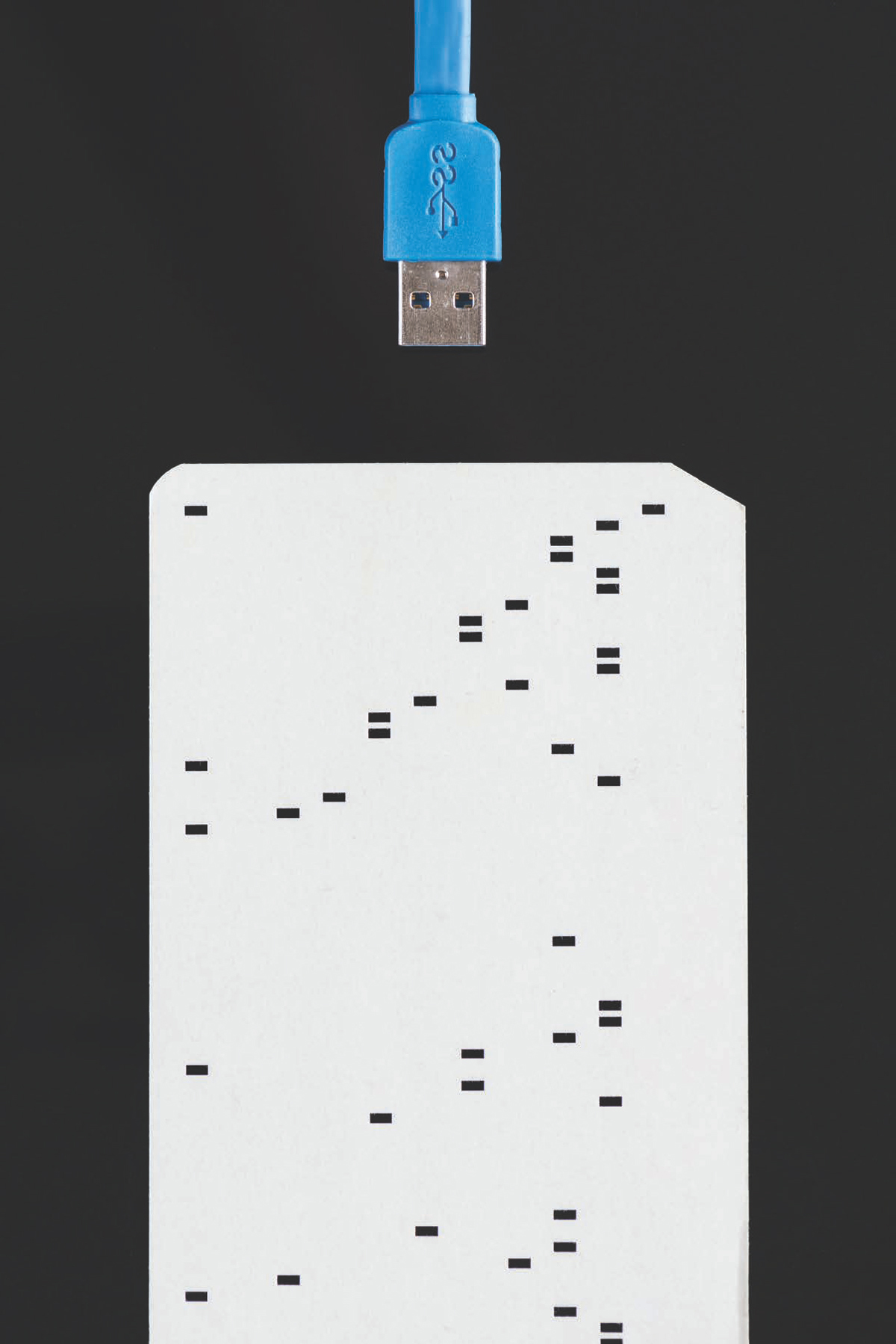
Early coders used punch cards to create computer programs. This image shows an old punch card and a modern USB cord. Both give a computer instructions.

chapter_01
An Introduction to Coding in Internet Security
C omputer coding is the process of designing and building a computer program to perform a particular set of tasks. This process is also called computer programming or software development. Early computer coders used punch cards to build computer programs. It worked like this: a coder wrote out the data and program instructions for the program. The coder (or a helper) then punched holes into a card in a set pattern for each piece of data or program instruction. There might be hundreds or even thousands of these cards for a given program. The complete set of cards for a program was called the source deck. The source deck was fed into a machine called a compiler. The compiler converted the program instructions into a special language called machine language and produced a new stack of cards with holes punched through them called the program deck. This was the program. A computer operator could insert a program deck into a computer to perform the task the program was built to complete.
COMPUTER CODING AS A CORE COMPETENCY
Today, coders build programs by typing program instructions into a computer text file. These instructions are called source code. Program instructions are written in one of several programming languages. In most cases, coders feed the source code into a computer program called a compiler. The compiler converts the source code into a program. There are literally millions of computer programs designed to perform all sorts of tasks.
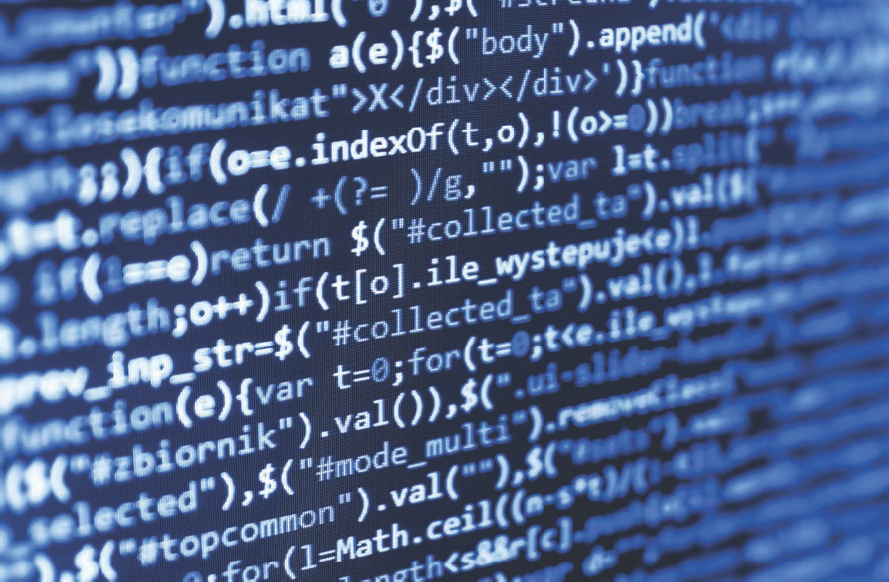
Here is an example of modern computer code.
Computer coding used to be a special skill that few people knew how to do. Today, it is a core competency for young peoplelike reading, writing, or math. This is because more and more jobs require computer-coding skills.
COMPUTER CODING AND INTERNET SECURITY
Computer coders work in many different industries. Some work in health care. Others work in manufacturing, communications, or transportation. Still others work in the military or in government agencies. Some computer coders specialize in an area called internet security or cybersecurity. A US Department of Defense division called the Advanced Research Projects Agency (ARPA) developed the internet during the 1960sexcept they called it the ARPANET. At first, the ARPANET consisted of only four linked computersthree in California and one in Utah. Today, the internet connects billions of computers around the globe.
The importance of the internet cannot be overstated. As a nation, we are dependent on the internet, says the US National Security Agency (NSA). Businesses and other organizations, including government agencies, use the internet constantly. And every day, people use the network to shop, bank, and communicate. We all count on having ready access to the internet and its many capabilities, says the NSA.
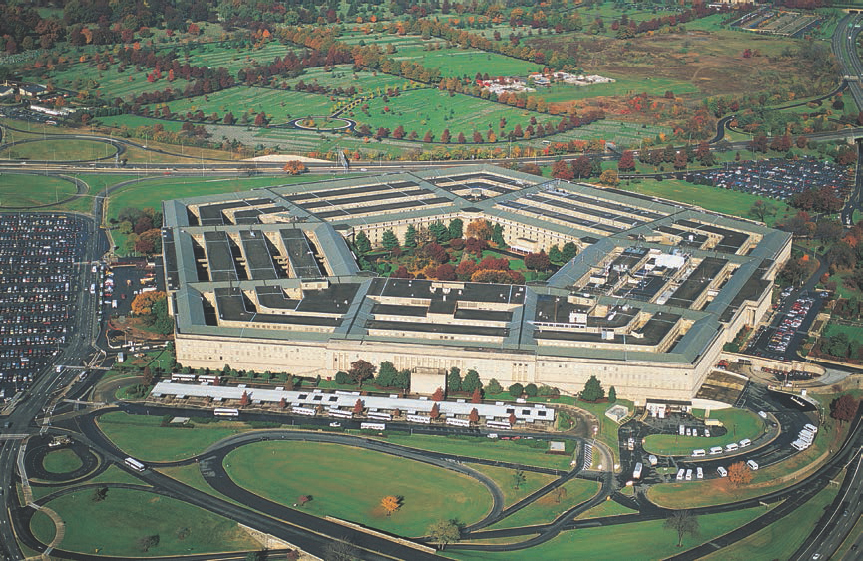
Today, coders can find jobs in many places. Some internet security jobs are found at the Pentagon.
This makes the internet particularly attractive to hackers. Hackers are computer users who break into a computer system, usually to steal personal information stored on a computer.
Some hackers are motivated by profit. Their goal is often to steal personal data from computer users and use this information to apply for credit cards or loans. This practice is called identity theft. They achieve this by breaking into business systems to steal customer data or by accessing the machines of individual users to search for sensitive information. Hackers who do this are often called cybercriminals.
Other hackers want to create chaos. They often do this by infecting computer systems with programs called malware. Malware is short for malicious software. It is a type of computer program built by hackers whose purpose is to damage or exploit a computer system in some way. Malware attacks can be very damaging. For example, a cybercriminal could hurt the economy by attacking business systems. Or a cybercriminal could shut down the electrical grid by attacking a power companys computer systems. Both scenarios could result in serious social unrest!
Then there are the hackers who have a more nationalistic aim. These hackers might breach a computer system of a foreign government to gain insight into military activities or foreign policy. They might even shut down a government computer system as an act of war. These hackers are often called cyberterrorists.
Computer coders who specialize in internet security can help prevent these types of cyberattacks. These cybersecurity professionals make the internetand the worldsafer.

